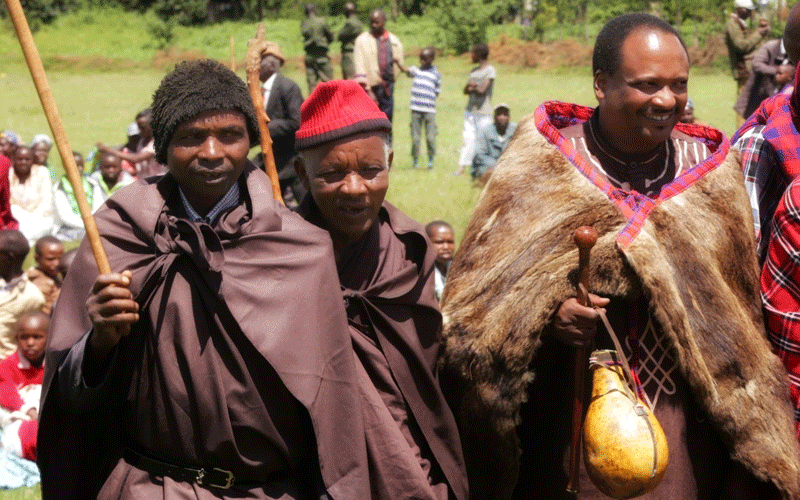Delay to enforce African Court’s ruling irks Ogiek
By Roy.Lumbe, May 30, 2022The Ogiek community has raised concerns over the unwillingness of the Kenya government to implement the African Court on Human and Peoples’ Rights’ judgment which granted them redress over illegal eviction from Mau Forest.
Ogiek Council of Elders chairman John Sironga observed that despite the court making its pronouncement five years ago, the Kenyan government was delaying the implementation of the judgment.
Sironga said the State had gazetted two task forces to facilitate the implementation of the judgment, yet none has made their recommendations public while the community is suffering.
“As we celebrate the fifth year it remains unclear when indigenous communities will finally realize the fruits of their struggle and enjoy their full rights, we need our land back,” said Sironga.
Sironga added that they can’t help but wonder how long it will take for their rights to be finally recognised or what it will take for the government to grant them their communal tenure rights.
“The government had been given six months to implement the judgment however, it has been five years, we have been called for meetings and there is no goodwill, we want the government to respect the court’s decision,” he added.
On his part, Ogiek Peoples’ Development Programme (OPDP) Executive Director Daniel Kobei urged the government through the Ministry of Environment to take the measures necessary to enforce the African Court’s judgment without further delay.
Failure to do so, Kobei said the actions prolong the injustice the Court’s judgment set out to redress and shows a reckless disregard for the legitimacy of human rights institutions established to remedy fundamental rights violations.
“We nevertheless remain cautiously optimistic that despite delays and hope the Task Force recommendations will result in a report that fully implements the judgment and charts a path to the conservation of the Mau Forest that fully integrates the Ogiek as stakeholders,” said Kobei.
Forced evictions
On May 27, 2017, the Court ruled that by routinely subjecting the community to arbitrary forced evictions from their ancestral lands in the forest, the government had violated seven separate articles of the African Charter, including their right to property, natural resources, development, religion, culture, and non-discrimination.
Crucially, the Court recognized that the Ogiek are an indigenous people and have a critical role to play in safeguarding their local ecosystems and in conserving and protecting their ancestral lands and natural resources. The Court specifically found that conservation of the Mau Forest could not be used to justify the Ogiek’s eviction.
The Ogiek, 35,000 of whom are victims in the landmark case, live in the Mau Forest Complex in the Rift Valley of Kenya. They are one of the few remaining forest-dwelling communities and among the most marginalised Indigenous Peoples in Kenya.
The Ogiek have lived in the Mau Forest in the forested areas around Mount Elgon, relying on these territories for food, shelter, identity, and their very survival.
More Articles

